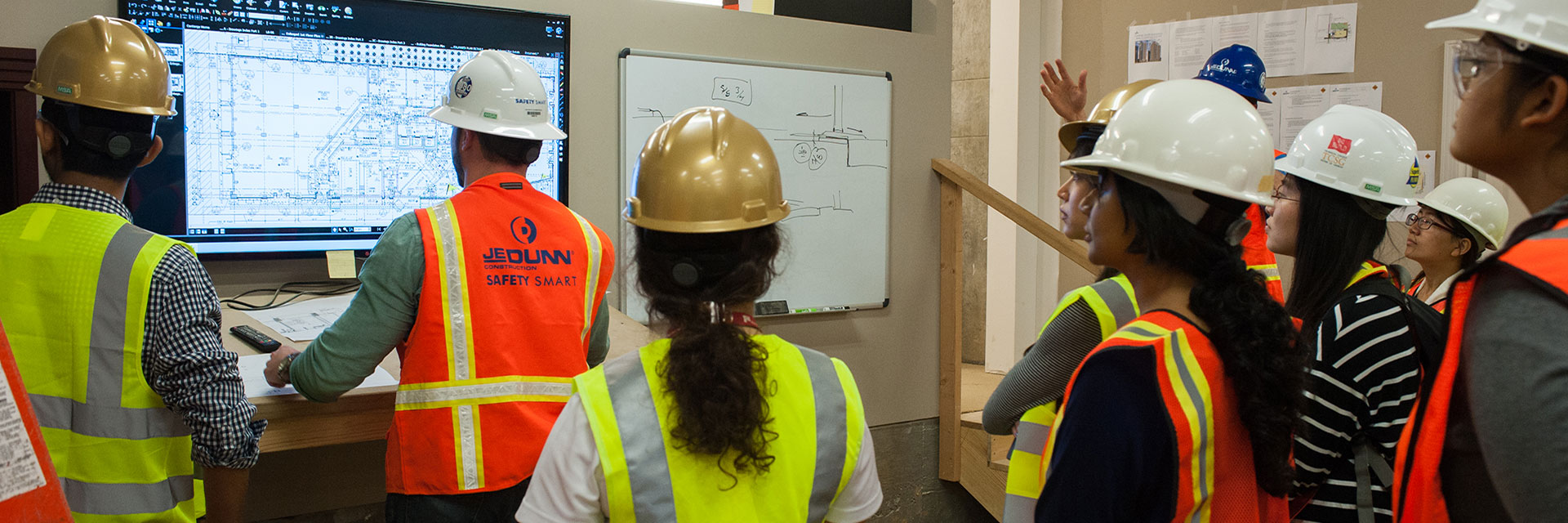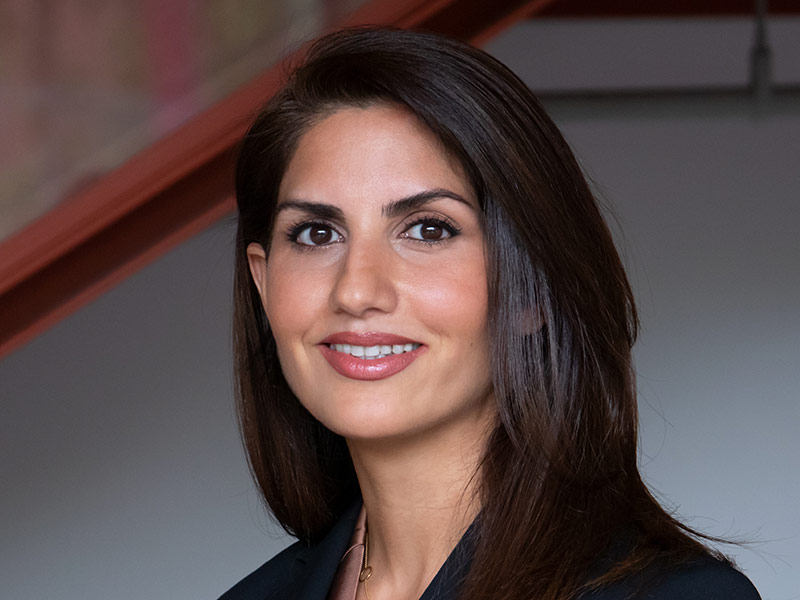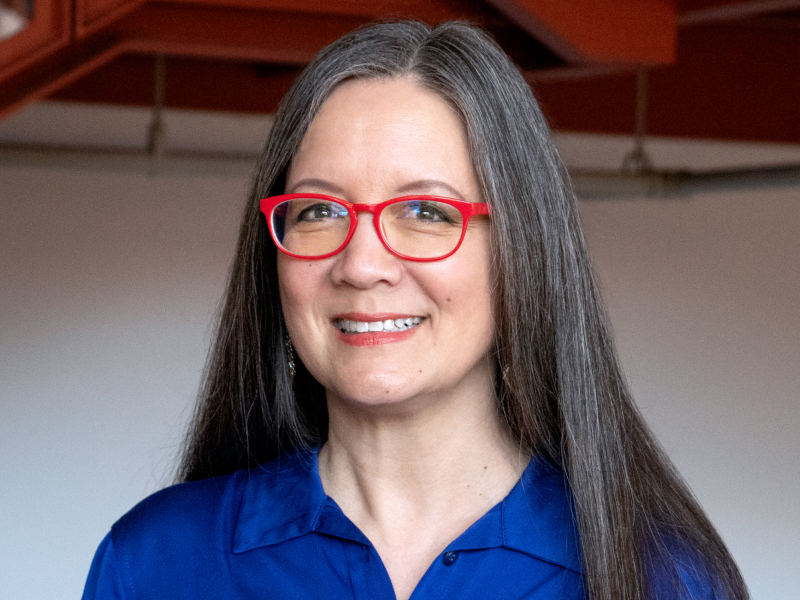
Master of Science in Building Construction
and Facility Management
The MSBCFM is a STEM-designated degree program so that international students can extend their Optional Practical Training (OPT) experience for up to three years. Its integrated approach towards program management, construction management, and facility management has been a magnet for local part-time students, in addition to its hands-on technology applications courses, leadership and communications emphasis, and access to industry professionals.
In addition to the Georgia Tech Graduate Education admissions requirements, MSBCFM candidates will also need to meet the following standards:
Bachelor's Degree Requirements
A bachelor's degree in one of the following fields from an accredited institution is required to be considered for admission.
- Construction
- Civil Engineering
- Architecture
- Architectural Engineering
- Landscape Architecture
- Mechanical Engineering
- Electrical Engineering
- Facility Management
A bachelor's degree in another field with a minimum of two years experience in a related field is also acceptable.
English Proficiency Requirements
All applicants must meet at least ONE of the Georgia Tech English proficiency requirements below:
- IELTS ≥ 7 (minimum band score for Reading, Listening, and Speaking is 6.5; minimum band score for Writing is 5.5)
- TOEFL iBT ≥ 90 (each section must score 19 or higher)
- Georgia Tech Language Institute English Proficiency Assessment overall score of 3
GRE Requirements
For the MSBCFM, the GRE is the preferred application criteria, but is not required.
Essay Requirement
Two essay questions are required and are included in your online application.
- Explain your professional/personal post-baccalaureate experience in building construction.
- Describe how your academic or professional background will support you as you pursue a master's degree.
Letters of Recommendation
Three letters of recommendation are required.
The School of Building Construction reviews applications on a rolling basis between early and late deadlines; however, it is encouraged that full applications be completed by the early deadline, especially if the applicant is interested in being considered for limited GTA/GRA funding opportunities.
Fall Admission:
- Early Deadline on January 15
- Late Deadline for International applicants on April 1
- Late Deadline for U.S. Applicants on May 1
Spring Admission:
- Early Deadline on July 15
- Late Deadline for International applicants on September 1
- Late Deadline for U.S. Applicants on October 1
Option 1: Non-Thesis with Concentration in Program & Facility Management (PM&FM)
Program and Facility Management Concentration 15 total credit hours | ||
BC 6185
| 3 Credit hours | Introduction to Construction Program Management |
| BC 6485 | 3 Credit hours | Management of Preconstruction Phase as Owner |
| BC 6200 | 3 Credit hours | Maintenance Management of Built Assets |
| BC 6100 | 3 Credit hours | Professional Trends in Facility Management |
| *Approved Elective | 3 Credit hours | See Approved Electives List |
Option 2: Non-Thesis with Concentration in Technology
Technology Concentration 15 total credit hours | ||
| BC 6050 | 3 Credit hours | Building Information Modeling for Multi-disciplinary Integration |
| BC 6005 | 3 Credit hours | Technology Applications in the Construction Industry |
| BC 8803 | 3 Credit hours | Digital Twins for the Built Environment |
| BC 8803 | 3 Credit hours | Construction 4.0 |
| *Approved Elective | 3 Credit hours | See Approved Electives List |
Option 3: Non-Thesis with No Concentration
The students will also be given the option to NOT pursue any specific concentration by choosing from the electives offered under any of the two concentrations.
No Concentration (Non-Thesis) 15 total credit hours | ||
Concentration Electives (Technology and Program & Facility Management Concentrations)
| 12-15 Credit hours | Choose from courses offered under Technology and Program & Facility Management Concentrations
|
| *Approved Elective | 0-3 Credit hours | See Approved Electives List |
Option 4: Thesis Option
No Concentration (Thesis) 15 total credit hours | ||
| BC 7100- 3 credit hours | 3 credit hours | Quantitative Methods for Construction Research |
| BC 7000- 6 credit hours | 6 credit hours | MS Thesis hours |
| *Concentration electives | 0-6 credit hours | Choose from courses offered under Technology and Program & Facility Management Concentrations |
| *Approved elective | 0-6 credit hours | See Approved Electives List |
After completing the MSBCFM Required Core Courses (15 credits) and declaring a concentration, students should review the concentration coursework requirements to determine the need for an approved elective(s) for degree completion.
| *Approved Electives | Credit hours | |
BC 6675 - | 3 | Residential Design and Construction |
3 | Real Estate Policy, Trends, Ethics | |
3 | Facilities Management Financial Analysis | |
3 | Real Estate Development Law | |
3 | Design and Construction Law | |
3 | Community Design and Development | |
3 | The Evolution of a Deal | |
3 | Quantitative Methods for Construction Research | |
3 | Advanced Planning and Estimating Methods | |
CEE 8813 | 3 | Construction Industry Best Practices |
**Note: CEE will need a permit from the School of Civil and Environmental Engineering and are not guaranteed.


